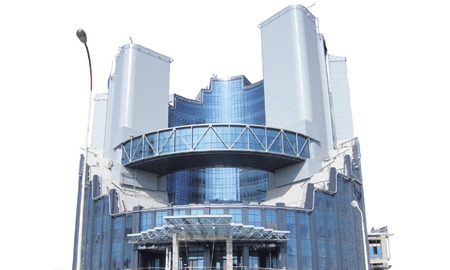The National Company for Hydrocarbons Research, Production, Processing, Transport and Trade,
Sonatrach, is the government-owned company created to exploit Algeria’s hydrocarbon resources. It is engaged in all aspects of the oil and gas industry, from exploration and extraction to refining, transport and trading.
Its export revenues reached $56.1 billion in 2010, contributing hugely to Algeria’s position as the fourth largest exporter of LNG worldwide, the third largest exporter of LPG, and the fifth largest exporter of natural gas.
“The results speak for themselves and demonstrate Sonatrach’s good health: the turnover for the 2011 financial year reached $72 billion, an increase of 29% compared with 2010,” says Sonatrach’s CEO Abdelhamid Zerguine.
“We wish to intensify our exploration policy, in order to secure our oil and gas reserves, to leverage the country’s natural resources by updating and developing the domestic petro-chemical industry.”
“Our exploration portfolio has increased from 30 exploration concessions in 2011 to 57 in 2012, including 15 new prospecting areas.”
“We also have teams in West Africa who are studying and evaluating exploration and production opportunities there.”
Abdelhamid Zerguine,
CEO of Sonatrach |
Present in 15 countries around the world, Sonatrach ships its products as far as Brazil, Japan and Korea. It also holds concessions in Libya, Mauritania, Peru, Yemen and Venezuela, and operates in the U.S. and Europe (with subsidiaries and distribution offices in the U.K., Italy and Spain). The group, which can justifiably claim to be the mainstay of the Algerian economy, has diversified into the petrochemical industry, as well as renewable energy and saltwater desalination.
Mr. Zerguine explains the company’s current priorities: “We wish to intensify our exploration policy in order to secure our oil and gas reserves, to leverage the country’s natural resources by updating and developing the domestic petrochemical industry, which is a good way to reduce our import bill and promote the development of our SME sector. Our ambition is also to strengthen the management of our companies (in the areas of human resources, audits and ethics) and work toward a successful integrated energy policy using our own capabilities.”
Between 2012 and 2016, Sonatrach plans to spend a massive $68 billion, 82% of which is for its upstream operations. The group’s priority is to develop its exploration activities so as to assure Algeria’s domestic supply and also Sonatrach’s position in the worldwide energy market.
“Upstream, our main objectives are to renew our oil and gas reserves through an intensification of our exploration efforts, and to develop production from our existing fields. Our exploration portfolio has increased from 30 exploration concessions in 2011 to 57 in 2012, including 15 new prospecting areas. In 2014, we plan to be exploring on a total of 79 concessions. This ambitious program should permit us to go from 210 million TEP (tons of equivalent petrol) in 2012 to 234 million TEP in 2016, an increase of 11%,” says Mr. Zerguine.
Specifically, 160 new wells per year should be drilled, and new partnerships are welcomed.
In 2009, the Government signed exploration contracts with four companies: ENI (Italy), British Gas (U.K.), EON-Ruhrgas (Germany) and Gazprom (Russia). Following 16 discoveries, seven were implemented through partnerships, and the following year saw a further 29 hydrocarbon discoveries.
“We have 1.5 million square kilometers of sedimentary deposits, which are potentially rich in hydrocarbons, and the majority has not been explored, so we plan to intensify the research in the Hassi Messaoud and Illizi fields. We are also working to evaluate our considerable non-conventional hydrocarbons resources,” says Youcef Yousfi, Minister of Energy and Mines.
Sonatrach is also exploring and operating beyond Algeria, and its subsidiary SIPEX, working in association with the National Oil Corporation in Libya, has recently discovered two new oil fields 143 miles south of Tripoli. SIPEX additionally operates in Niger, Mali, Mauritania and Tunisia.
In South America, Sonatrach is present in Peru via the Camisea field consortium, where the group has brought its expertise and owns a 10% stake in upstream operations, and a 21.8% stake in the pipeline and transport division. “We also have teams in West Africa who are studying and evaluating exploration and production opportunities there,” says Mr. Zerguine.

0 COMMENTS